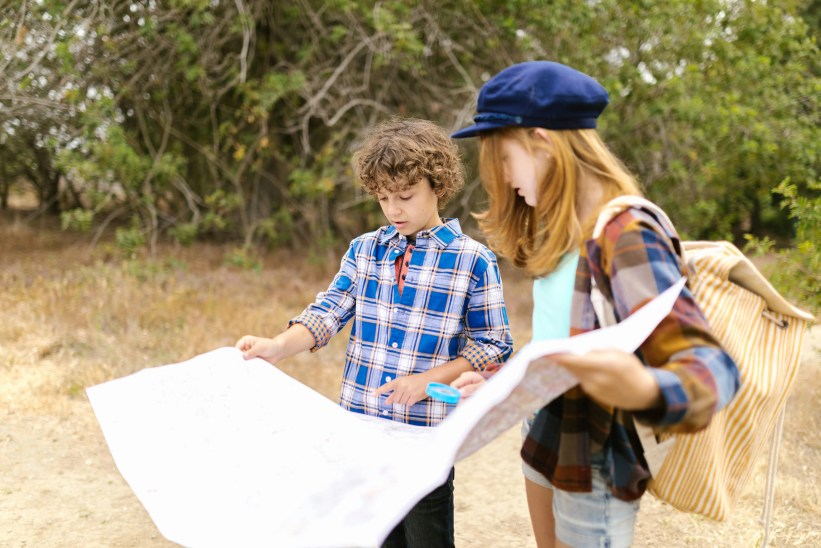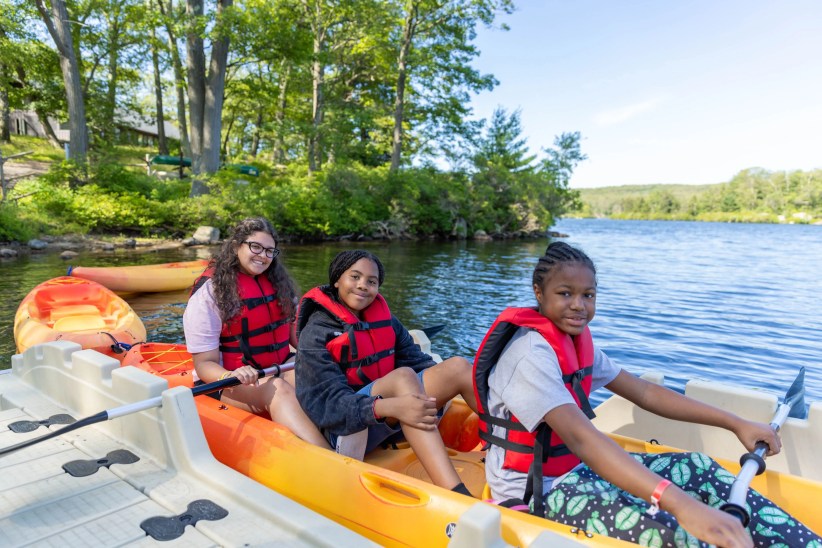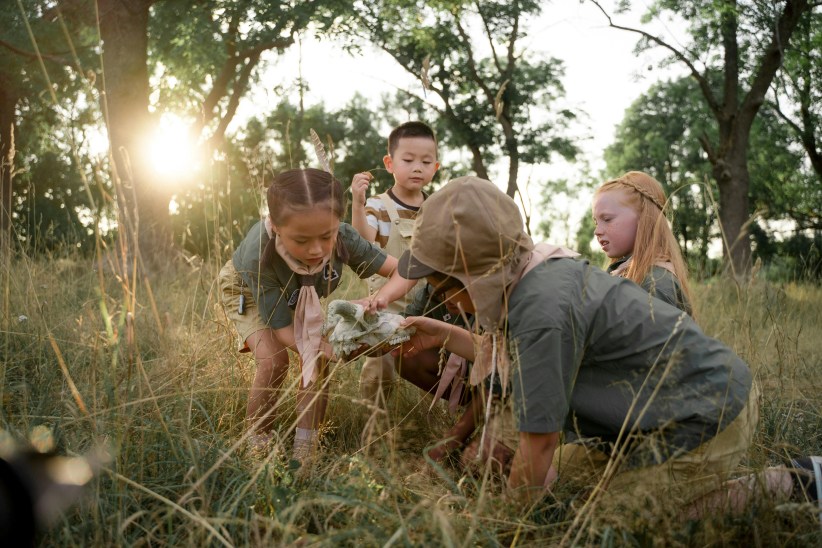Camp provides children with the opportunity to learn new activities, meet new friends, and learn life skills such as self esteem, leadership and confidence. There are many different summer camps for families to choose from and each camp provides unique programming and approaches. Parents should consider what type of program and camp environment will fit with their child’s interests and personality. But with so many different camp options, what is the best way for parents to find out what a camp is really like? How do parents begin to weed through all the options?
Tour The Camp: Naturally, a great way for parents and children to get a feel for a day camp or resident camp is to tour the camp. Scheduling a camp tour with your child the summer before sending your child to camp gives him or her a chance to see the camp in action. A tour also gives you a chance to ask the camp director questions in the camp environment. “Our partnership with our families often begins with our camp tour,” says Josh Male, owner and director of Gate Hill Day Camp in Stony Point, N.Y. “A tour gives me an opportunity to hear what’s important to our parents and their children. It also allows us to speak about Gate Hill in a relaxed and personal way.” Camp tours give children the feeling that they are part of the process of choosing the camp, and the more involved a child feels in the decision making, the more successful the camp experience usually is. If it’s not possible to tour the camp during the prior summer, you also could look into scheduling a tour in the off season.
Sample A Camp: Many camps offer interested campers a chance to “try out” the camp by participating in Rookie Days or Rookie Weekends, or even abbreviated sessions before registering for the next summer. “Our rookie programs enable our campers and parents to learn and experience the variety of programs we offer and the values that we teach at camp,” says Walter Synalovski, director of Camp Mah-Kee-Nac, a boys’ resident camp in the Berkshires, MA.”In addition, parents and kids have the opportunity to meet our nurturing staff and become part of the Mah-Kee-Nac family. When they return the following year as a camper, they are familiar with our program and staff and know what to expect while at camp.” Mark Benerofe, owner and director of Camp Winadu, a resident sports camp for boys also located in the Berkshires, has a week-long program with a similar bent. “We call it Discovery Week,” he says. “It gives boys the chance to experience camp life for a shorter period of time before they make a commitment to a 5 or 7 week session. They learn about living in a bunk, separating from their parents, and going through the daily activities that make up a sleep away experience—and it really sets them up for success the following year because everything is familiar.”
Many day and resident camps offer short sessions of up to a few weeks. Indeed, there are some camps that are “pure” short session camps—meaning short sessions are their only mode. They are a great option if short sessions are the only kind of camp experience you intend for your child. However, if your ultimate goal is to transition your child into a longer camp experience, then the American Camp Association, NY and NJ, recommends testing the waters with a longer-session camp that offers an introductory shorter session. Camp builds community. You don’t want your child to become a part of a “pure” short-session camp community if they’re only going to end up wanting more and more—and then can’t get it from the camp community you’ve put them in. Cole Kelly is the camp director at Camp Weequahic, a resident camp in Wayne County, PA, which offers two three-week sessions or the option to stay for both sessions. He says, “We feel a short session camp must provide a specific beginning, middle and end for each of our campers. Even in the short sessions our campers enjoy all the fabulous traditions of summer camp as well as a wide variety of activities they don’t get much time to enjoy at home. And of course if you go for both sessions you have that much more time to nurture friendships and enjoy camp life.”
Look at websites, videos and brochures: Parents and campers should take time to look over a camp’s website, brochure and video. They will give families a sense of what a particular camp is like. Most camp websites have photo slideshows, videos, virtual tours and maps which will give parents and children a glimpse of the camp and the camp program. Many camps also include a sample daily schedule so families can see what a typical day at camp is like. Camps may also send you a DVD upon request.
Talk to the Camp Director: Parents want to make sure they click with the camp director. Sam Borek, owner and director of Woodmont Day Camp in New City, NY, says, “An important first step in selecting the right camp for your child is meeting the camp director. Everything the camp does starts at the top and trickles down to the staff, the campers and the families. You and values.” Speaking with the camp director and asking some key questions is a good way for families to find out about a camp’s philosophy and to determine if it matches your own. Get to know the camp director through phone calls, correspondence and in person if possible. Often, the camp director will come to your home during a visit to your area. Ask the camp director about the camps’ mission statement and what type of child is successful at camp. Likewise, the more open families are with camp directors, the better informed they will be when it comes to making a decision.
Renee Flax, camper placement specialist at the American Camp Association, NY and NJ, says, “While it is important for you to get to know a camp’s personality, it is also important for a camp director to know about your family. You are forming a partnership with the camp director. When speaking to the camp director, make sure to give an accurate picture of your child and what your specific goals are for your child’s camp experience. Be upfront about your child’s disposition and how your child does in group settings. Talk about their strengths and weaknesses. This will help them with bunk placement. Even more, it will help them know whether they have the right camp for your child. A camp director wants a successful summer camp experience for your child. You can rely on that.”
Visit A Camp Fair: Camp directors realize that many parents don’t have the time to visit all the camps they might be interested in, so many of them participate in local camp fairs, where they set up information booths with videos of the camps and brochures. Camp fairs typically welcome children as well, so they’re a great opportunity for everyone in the family to meet many camp directors, get a lot of info, and often discover one or more camps that might be a good fit for the children. In the greater New York City area, the American Camp Association, NY and NY, works with New York Family magazine to host a series of camp fairs throughout the year. The fairs are free and feature resident camps and day camps of every variety. For more information about the ACA-sponsored Camp Fair series, visit newyorkfamilycamps.com.
Speak To A Camp Consultant: Much like college advisors, there are people who specialize in helping families select the right camp for their child. Typically, they don’t charge a fee—rather, they get paid by the camp that the family selects. Their advice is generally very reliable (after all, they want families to be happy with the results, or they’d put their own reputation at risk). For example, one popular service, The Camp Connection, typically visits about 75 camps each summer to ensure that their impressions are fresh and accurate. Some camp consultants will visit you at home; others, like Camp Connection, are a phone service. Laurel Barrie, one of the co-owners of Camp Connection, says they speak to most families “multiple times,”with the purpose of not only identifying some camps they might like but”helping them identify the core criteria and values that are most important to them when they think about the development of their child.” Parents interested in conferring with a camp advisor should be aware that the American Camp Association, NY and NJ, has their own Camp PlacementSpecialist, Renee Flax, whose vast knowledge and familiarity of camps is matched by her insight and general helpfulness. Renee can be reached at 800-777-CAMP, or at renee@aca-ny.org.
Speak To Parents Who Send Their Children To A Camp You’re Interested In: No parent is going to have the exact same priorities or perceptions as you do, but it still can be very helpful to hear a parent or two talk about their children’s experiences at a camp you’re considering—and you certainly can ask a camp director for some parent references. It’ll give you a feel for the kind of families who favor the camp, and whether they describe a camp experience that’s in keeping with what you hope for your child. Similarly, friends can be a reliable source of information too, but just keep in mind that no one is a better expert on what’s right for your child than you are. No matter what a friend says, do your own research as well.
Traditional Or Specialty Camp?
Kids tend to hone in on a few hobbies or interests during the course of the school year, and the push to specialize—whether you like baseball, or violin, or chess, or anything else—is happening at younger and younger ages. This trend has had a great impact on how parents think about summer camp, with some favoring the chance for their child to enjoy a broad range of traditional camp activities, while others are hoping to give their child a chance to deepen their experience in one area of interest while also enjoying other camp activities. In doing your camp research, one of the key questions to explore from the start is whether you’re leaning to toward “traditional” or “specialty.”
Traditional summer camps offer children a varied camp experience with many different camp activities such as swimming, archery, ropes course, arts and crafts, soccer, basketball, boating and drama, among many others. For parents looking to provide their children with a social and developmental experience, such as learning life skills, developing independence, learning responsibility and connecting with people, the traditional camp will provide these experiences. Campers at traditional camps also become part of a community and will enjoy traditional summer camp activities such as Olympics, Color War, Bunk Activity Days, Community Service Projects, Carnival, and trips off camp.
Specialty camps focus on a specific camp activity or related camp activities for a given period of time. There are many different types of specialty camps available for children for just about every interest, such as horseback riding, tennis, drama, gymnastics or soccer. If your child has an interest in a specialized activity, there is bound to be a camp geared toward that interest.
So, how do you know if you should send your child to a traditional camp or a specialty camp?
Your child’s age is one factor to consider. Young children often don’t show a specific interest in just one activity because they are still figuring out what their interests are. Traditional camp gives them exposure to a whole range of activities and allows children to develop many different skills and talents. Older children and teenagers have often narrowed down their interests and sometimes show a particular interest in a sport or a skill. A specialty camp may be a good option for them to hone these skills. At the same time, parents should keep in mind that many traditional camps offer focused programs where campers can specialize in an activity of their choice such as tennis or soccer, while still enjoying the benefits of the traditional summer camp experience. Likewise, many traditional camps hire top coaches or experts as their specialists so campers receive top instruction.
Parents also want to think about their child’s interests. If, during the school year, a child likes participating in school plays and also playing for a basketball team, he or she may prefer a traditional camp where the camper can participate in many different activities each day. If a child only participates in one activity all of the time and shows little interest in anything else, a specialty camp might be the right fit for that child, however, some parents might feel their child spends too much time on one activity during the school year and that a traditional camp will expose their child to a more diverse range of activities.
“When choosing a camp, parents should consider all the facets of their child’s experience and everything they would like their child to gain during a summer at camp. A camp’s mission, leadership, activities and facilities all support a positive camp experience,” says Adam Weinstein, executive director of the American Camp Association, NY and NJ.






















